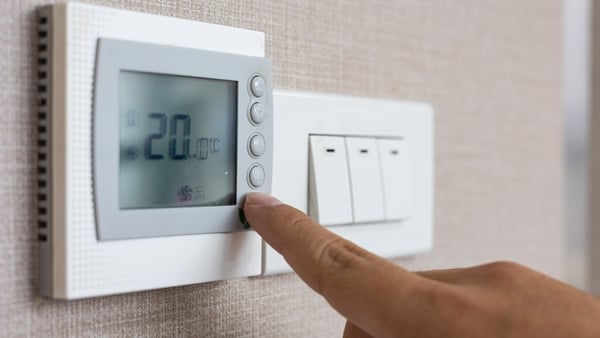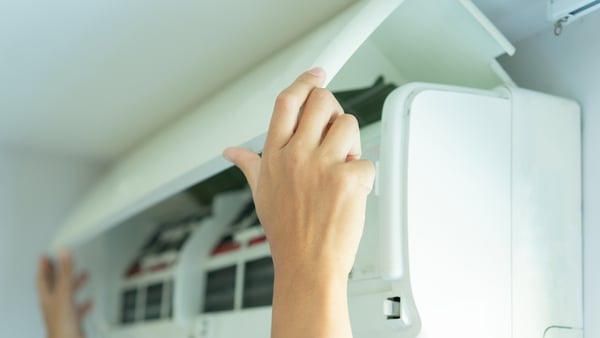Analysis: even two consecutive days of temperatures going over 25 °C can impact on your health and wellbeing
2022 was the hottest year on record for Ireland and the EU and this year is shaping up to break that record. Due to climate change, locations previously unacquainted with hot summers now face them. Both peak temperatures and the length of periods with warm temperatures are increasing.
The HSE warns that even two consecutive days of temperatures going over 25 °C can impact health and wellbeing. Mitigating against heat exhaustion or heat strokes is not just a precaution for during heatwaves, but is pertinent for the entire hot season.
Physiologically, the body has two main defenses against overheating: losing heat through the skin via convection and radiation by directing blood to extremities and sweating. We need to aid the body in doing this successfully. There are six important factors which affect our body's heat balance and ability to maintain a stable body temperature: air temperature, air humidity, air movement, temperature of surrounding surfaces and solar radiation, clothing, and our activity level. We can try and influence a combination of these factors to help our body maintain heat balance.
We need your consent to load this rte-player contentWe use rte-player to manage extra content that can set cookies on your device and collect data about your activity. Please review their details and accept them to load the content.Manage Preferences
From RTÉ Radio 1's Morning Ireland, are extreme temperatures now a reality of life?
Try to be indoors for the worst hours of heat. Maximum air temperature of a day is generally around 3pm, so the nearby hours are best spent indoors. If you are at home and sheltered from direct sunlight, try to cool down by reducing clothing. More clothing means more insulation for the body and more difficulty for the body to lose heat.
If going outdoors, have loose-fitting, light-colored clothing (and hat, sunglasses) that protect skin from direct sunlight. Apply sunscreen liberally. If you are working or meeting outdoors, try to meet in cooler hours (an hour past sundown would be good) or in landscapes which are green (trees) or blue (water bodies).
If the climate is dry or you are in an air-conditioned space, you will still be sweating imperceptibly and losing water and electrolytes so hydrate even if not visibly sweating. The sweat needs to evaporate from your skin to help it cool. Do not try to wipe it off unless you are dripping off sweat. Sweating leaves a residue on skin which slows further evaporation of sweat.
We need your consent to load this rte-player contentWe use rte-player to manage extra content that can set cookies on your device and collect data about your activity. Please review their details and accept them to load the content.Manage Preferences
From RTÉ Radio 1's Ray D'Arcy Show, reporter Sinead Ni Uallachain goes out and about in the sunshine with ice cream van man Noel Tracey
After a tiring day in the heat, have a shower when you get home or at least wipe down your limbs to allow better sweat evaporation - wiping can be done at other times of day too. A cool shower after returning from the warm outdoors also helps your body lose heat.
Since 1979, the need for heating buildings in the EU has decreased by 19% while the need for cooling has increased by over 250%! But we cannot all depend on air-conditioning to cool down. There are cheap, easy and low energy ways of keeping cool and preparing our homes to be cooler this summer.
The need for heating buildings in the EU has decreased by 19% since 1979 while the need for cooling has increased by over 250%
Make sure to turn off central heating. Turn off any electrical equipment, lights etc. that are not needed, during warm hours of the day to minimize heat building up indoors. Use blinds, curtains, shutters to prevent the sun from getting in through windows that are exposed to morning and/or afternoon sun. Shading is more effective outside (like louvers or blinds located outside) than placed inside (like indoor curtains). If you have a roof exposed to direct solar radiation, consider giving it a white/cool, reflective coating. Even a plain white lime coat can help.
After sundown, spend time outdoors to cool down and then open windows and doors (where possible) to get some of that cool air in. Getting night air in is not just about cooling you then and there, but is also about cooling the house's structure down so that it takes longer to heat up the following day. Use pedestal/desk/box fan near windows to boost air flow open multiple doors/windows, cross ventilate. The following morning, before the day's heat and sunlight can get in, close off doors and shade windows - especially east facing ones (and west facing ones slightly later in the day). The air outside maybe still cool enough that you want it in. But we want to avoid the sunlight getting in and heating up the coolth we achieved at night.
We need your consent to load this YouTube contentWe use YouTube to manage extra content that can set cookies on your device and collect data about your activity. Please review their details and accept them to load the content.Manage Preferences
What's the best place to locate a fan to move air through the house?
Fans may not help cool the room down, but they can help cool you down. Air movement can enhance sweat evaporation and convective heat loss from the body, improving comfort. You can use fan at an air speed that feels okay for you. It does not have to be the peak speed of the fan. Fans can be used at temperatures of even over 35 °C for comfort cooling. For quick assessment of benefits, you can check out this tool.
Ceiling fans are nice to have and can help cool everyone in a room, but they need some setting up. If you do not have them, maybe plan one for the coming summer. When setting up a ceiling fan, keep a gap of at least 50-60 cm between fan blades and ceiling so that it can suck in enough air to push it down - do not starve the fan.
If your roof is directly exposed to the sun, do avoid using the ceiling fan during the hottest part of the day - it will push down the warm air gathered around the ceiling, down into your comfort zone. Let the warm air gather and stay up there. During the warmest part of the day, better to depend on desk/box/pedestal fans for increased air movement. Even if you have air-conditioning, do not discard fans entirely. Air-conditioning with fans can give you lower energy cooling. It can also cool you down faster when you come in from outdoors.
Last year's summer heatwaves lead to over 20,000 excess deaths in the EU. Let us try to ensure that subsequent years do not see a similar burden of morbidity and mortality.
The views expressed here are those of the author and do not represent or reflect the views of RTÉ





